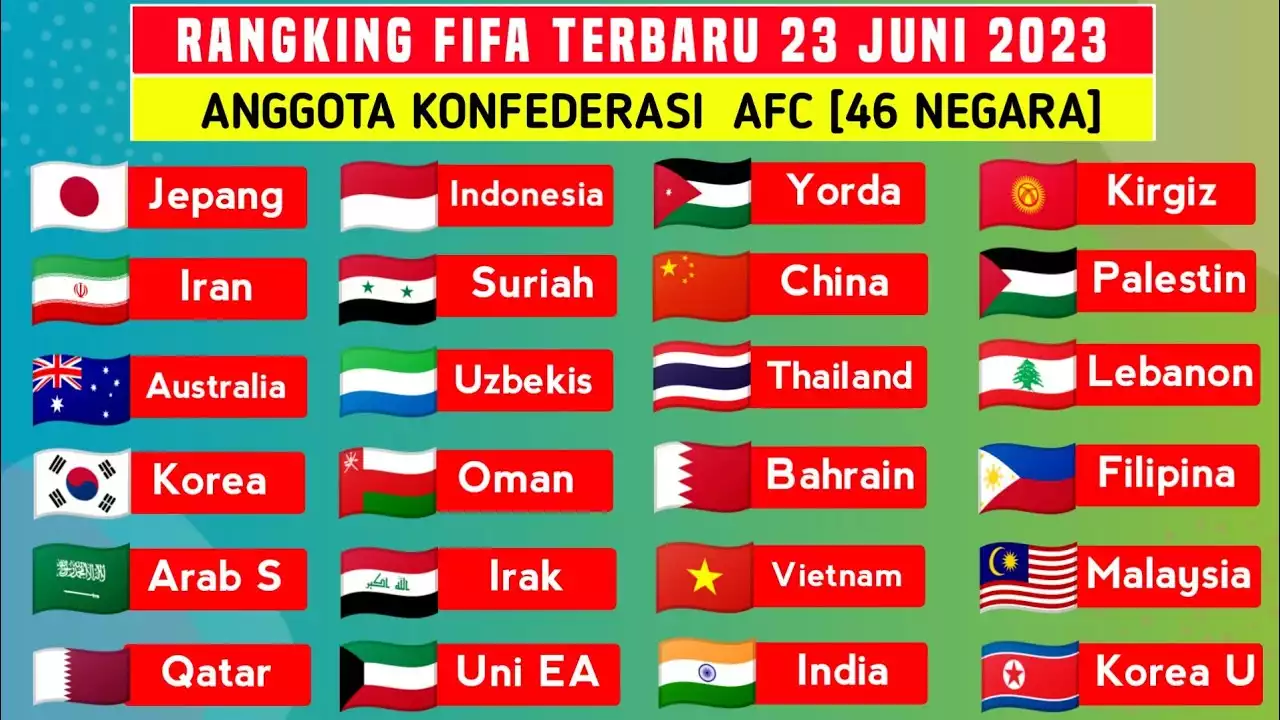Importance of Qualification for the Tournament
Qualifying for the AFC Asian Cup is a significant achievement for any team. The tournament provides a platform for teams to showcase their skills and compete against the best in Asia. It not only brings honor to the country but also helps in the development of football within the nation. The qualification process is rigorous and competitive, with teams having to prove themselves through a series of matches against tough opponents.
Teams that qualify for the AFC Asian Cup gain valuable experience and exposure, enabling them to improve their game and attract talented players. It also serves as an opportunity for players to represent their country on an international stage, instilling a sense of pride and unity among the team and its supporters. The tournament provides a platform for teams to test their mettle against some of the strongest teams in Asia, showcasing their potential and striving for success.
Explanation of Qualification Process
The qualification process for the AFC Asian Cup is a multi-stage process that spans several years. It begins with the preliminary round, where the lowest-ranked teams compete for a chance to progress to the next stage. The subsequent stages involve group matches, where teams battle it out to secure a place in the final tournament. The top teams from each group, along with the best-performing second-place teams, earn their spot in the AFC Asian Cup.
The qualification process is designed to ensure fairness and competitiveness, giving every team an equal opportunity to qualify for the tournament. The teams face various challenges, including tough opponents, unpredictable weather conditions, and logistical hurdles. It requires immense dedication, preparation, and teamwork to navigate through the qualification rounds and secure a place in the AFC Asian Cup.
Longest Qualification Droughts in AFC Asian Cup History
1. Philippines - 61 Years without qualifying
The Philippines has had a long and challenging journey to qualify for the AFC Asian Cup. Despite being a passionate footballing nation, the Philippines faced numerous obstacles that prevented them from qualifying for the tournament. Lack of infrastructure, limited resources, and a lack of support from the government were some of the factors that contributed to their extended drought.
However, in recent years, the Philippines has made significant progress in their footballing development. With the establishment of professional leagues, improved training facilities, and the appointment of experienced coaches, the Philippines has been able to attract talented players and strengthen their national team. Their determination and perseverance have paid off, as they finally qualified for the AFC Asian Cup in 2019.
2. Palestine - 55 Years without qualifying
Palestine's qualification drought for the AFC Asian Cup is a testament to the resilience and determination of the team. Despite facing numerous challenges, including political instability, restricted movement, and limited resources, Palestine has shown great determination in their quest for qualification.
The team has worked tirelessly to improve their performances, investing in youth development programs, and creating opportunities for players to showcase their talent. The commitment of the players, coaching staff, and footballing authorities has been instrumental in breaking barriers and overcoming the odds. After 55 without qualifying, Palestine finally secured their spot in the AFC Asian Cup in 2015.
3. Kyrgyzstan - 60 Years without qualifying
Kyrgyzstan's journey to qualify for the AFC Asian Cup has been marked by determination and perseverance. The team faced numerous challenges, including a lack of international exposure, limited resources, and strong opponents. However, Kyrgyzstan's footballing authorities recognized the need for improvement and invested in the development of the game.
The establishment of professional leagues, improved training facilities, and the appointment of experienced coaches have helped Kyrgyzstan make significant strides in recent years. The team's performances have improved, and they have successfully qualified for the AFC Asian Cup in 2019, breaking their long-standing qualification drought.
4. Lebanon - 40 Years without qualifying
Lebanon's qualification drought for the AFC Asian Cup is a story of resilience and determination. Despite facing internal challenges, including political instability and limited resources, Lebanon has persevered in their quest for qualification. The team has worked tirelessly to improve their performances, investing in youth development programs and creating a pathway for young talent.
The commitment of the players, coaching staff, and footballing authorities has been instrumental in Lebanon's progress. Through their collective efforts, Lebanon finally broke their qualification drought in 2000, securing their place in the AFC Asian Cup after 40 years.
5. North Korea - 25 Years without qualifying
North Korea's qualification drought for the AFC Asian Cup is a testament to the challenges faced by the team. Political restrictions, limited international exposure, and a lack of resources have hindered North Korea's progress in Asian football. Despite these challenges, the team has shown great determination and resilience.
North Korea has made significant progress in recent years, investing in the development of the game and creating opportunities for players to showcase their talent.
Future Prospects for These Teams
The teams with the longest qualification droughts in AFC Asian Cup history have made significant strides in recent years. Through their commitment, perseverance, and investment in the development of the game, they have shown that it is possible to overcome challenges and achieve success.
The future looks promising for these teams, who have demonstrated their potential and determination to make their mark on the continental stage. With continued support from footballing authorities, investment in infrastructure, and the development of youth programs, these teams have the potential to become formidable opponents in future editions of the AFC Asian Cup.
As they continue to break their respective droughts, these teams inspire others to believe in the power of determination, resilience, and hard work. Their stories serve as a reminder that success in football is not solely determined by resources or infrastructure, but by the passion and commitment of the players and the footballing community.
The teams with the longest qualification droughts in AFC Asian Cup history have faced numerous challenges in their quest for qualification. From limited resources to political instability, these teams have overcome significant obstacles to secure their place in the tournament. Through their determination, perseverance, and investment in the development of the game, they have shown that anything is possible.
The AFC Asian Cup provides a platform for these teams to showcase their skills and compete against the best in Asia. It serves as a reminder that success in football is not solely determined by resources or infrastructure but by the passion, dedication, and unity of the team and its supporters.
As these teams strive to break their respective droughts and make their mark on the continental stage, their stories inspire others to believe in the power of determination, resilience, and hard work. The future looks promising for these teams, who have proven that with the right support and opportunities, they can achieve greatness in Asian football.










